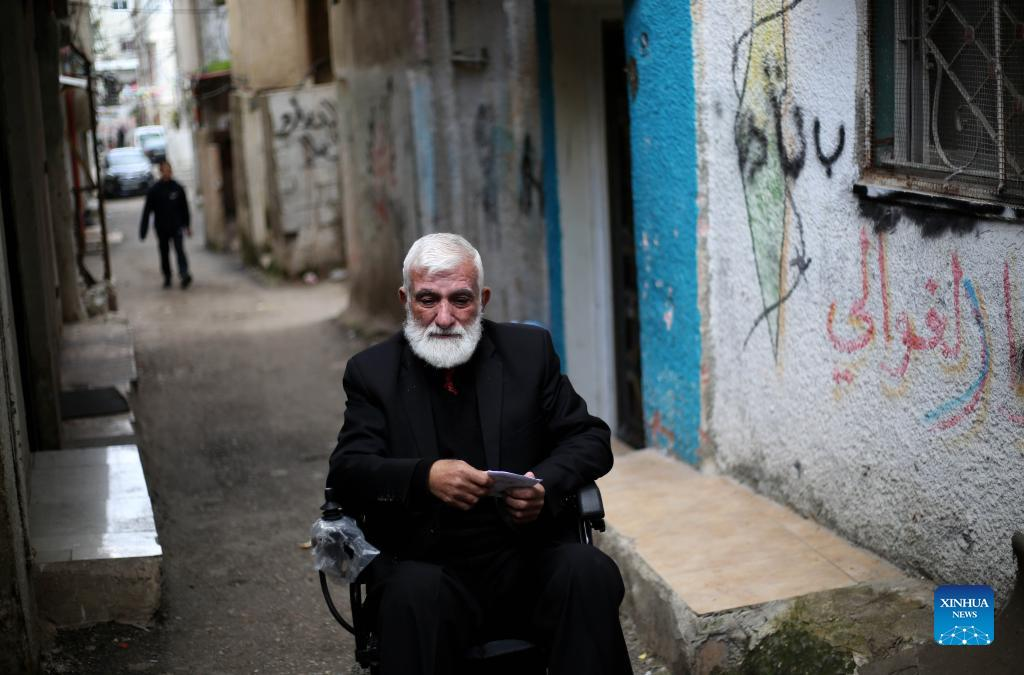Woes of Palestinian refugees’ worsen as international aid dwindles … reports Sanaa Kamal, Xinhua
Palestinian refugees living in camps scattered throughout the West Bank are facing worsening livelihood as the humanitarian aid from the United Nations decreased due to insufficient funds.
Inside the Balata camp in Nablus, Sohad Hammouda lives in a house of no more than 50 square meters with her 11-member family and is constantly worrying about bringing bread to the table.

“In the past, I mainly depended on the assistance provided by UNRWA, in terms of food and some money, but today things have changed, as it (UNRWA) has reduced the assistance it used to provide us,” said the 50-year-old woman.
The United Nations Relief and Works Agency for Palestine Refugees in the Near East (UNRWA) was established in 1949 as a United Nations agency by a resolution of the General Assembly to provide assistance and protection to approximately 5.6 million Palestine refugees registered with it in the West Bank, the Gaza Strip, Lebanon, Syria, and Jordan.
As one of the oldest humanitarian projects the United Nations had initiated, the agency has spent decades helping the displaced Palestinians. But it is facing a major problem.
Officials of the agency said UNRWA has a financial deficit of about 100 million U.S. dollars in this fiscal year, which forced it to downsize its aiding programs, including cutting food rations.
“Instead of getting our food ration every month, we now can only get it every three months. And the quantity is much smaller, barely enough for a month,” said Hammouda, while kneading flour to make bread for her children.
To make things worse, Hammouda’s husband suffers from kidney failure while their eldest daughter is sick too, which aggravates the financial burden on the family.
“The word refugee means escaping from death to a safe haven, but we escaped from death to the continuous suffering,” she said, adding that her family has been living as refugees for decades but still she saw no end to their suffering.
Ibrahim Sharara, aged 76, is a refugee with physical disabilities from the Balata camp. He usually sits in front of his dilapidated dwelling with his neighbors since there aren’t enough jobs in the camp, especially for disabled elders.
Sharara said that life inside the refugee camp is not easy, especially since they have been waiting for aid from international institutions to survive.
“I have been living in the camp since 1950, as my family was among the first to reside in this camp to escape death and fear,” the Palestinian said.
Both Hammouda and Sharara called for more aid from the international community as most of the refugees in the camp are deeply mired in absolute destitution.
Housing around 28,000 people, the Balata camp is only one of the 19 refugee camps in the West Bank, which all depend heavily on aid from the UNRWA.
“The camp suffers from overcrowding, while the population suffers from UNRWA’s downsizing, as the residents depend on one medical clinic that operates during specific hours only,” Faryal Kharoub, a community activist in Balata camp told Xinhua, adding they are afraid that the rest of the world is gradually forgetting the suffering of the Palestinians.
ALSO READ: ‘Pakistan to recognise Taliban govt after regional consensus
Hammouda said she saw no way for herself to live out of the refugee camp, where she has lived for many years, but she hoped that one day her children can get out and live in a prosperous place.
Nevin, one of her daughters, has entered a university to study computer programming.
“Although other students of my age dream of graduating from university to achieve their aspirations in life, I aspire to help my mother with household expenses and help my siblings complete their education,” the 20-year-old university student said. (Xinhua)

Leave a Reply